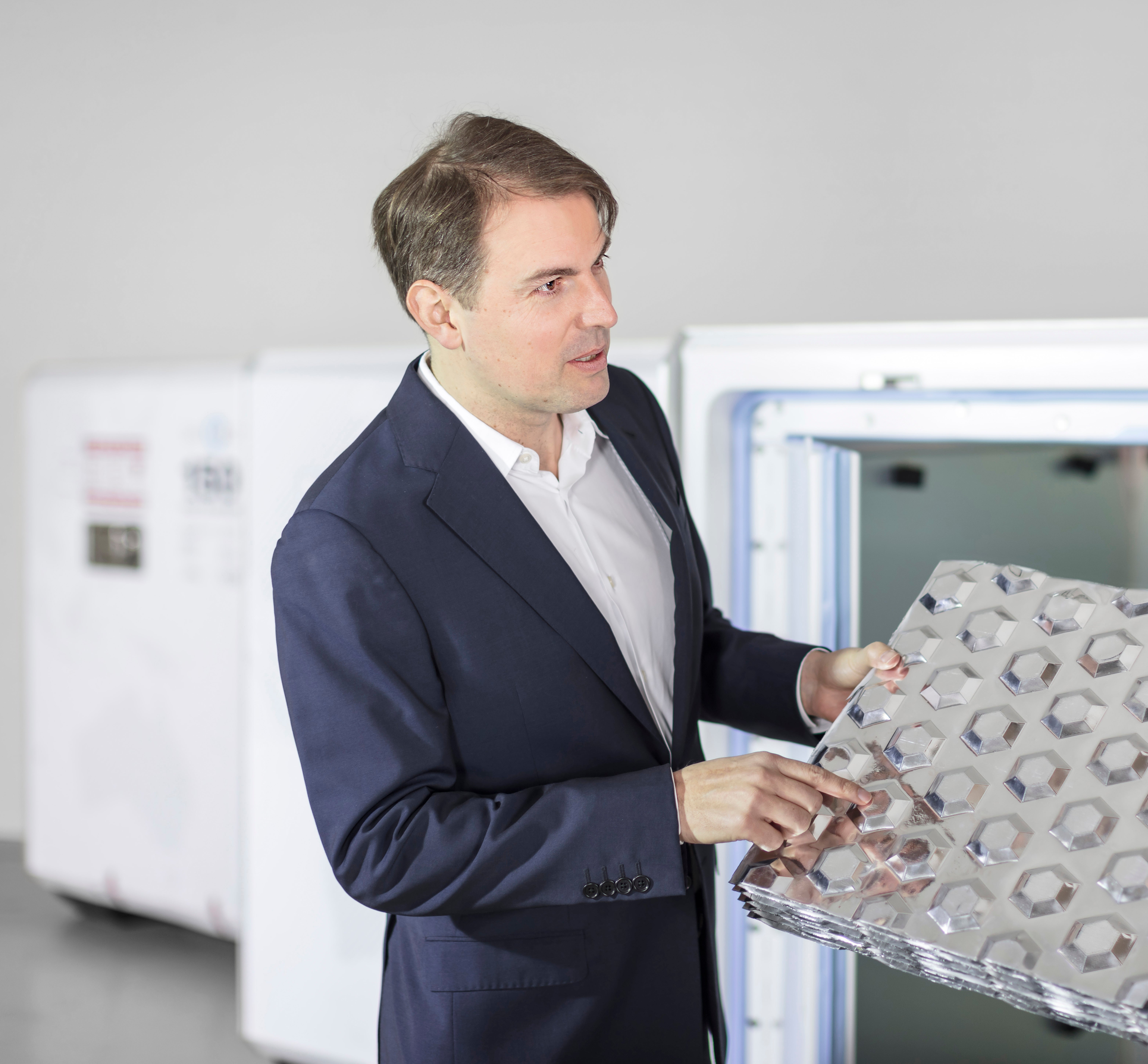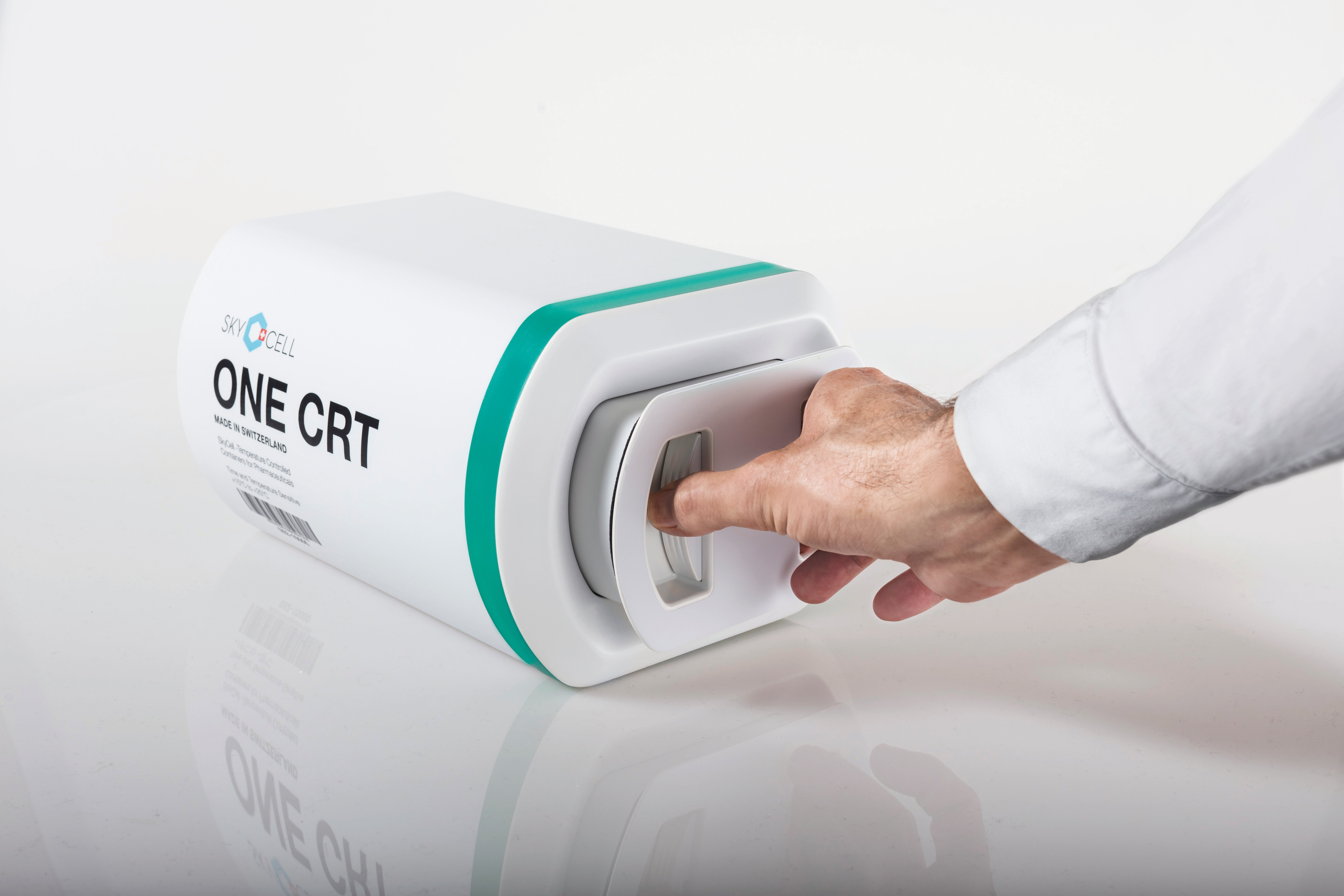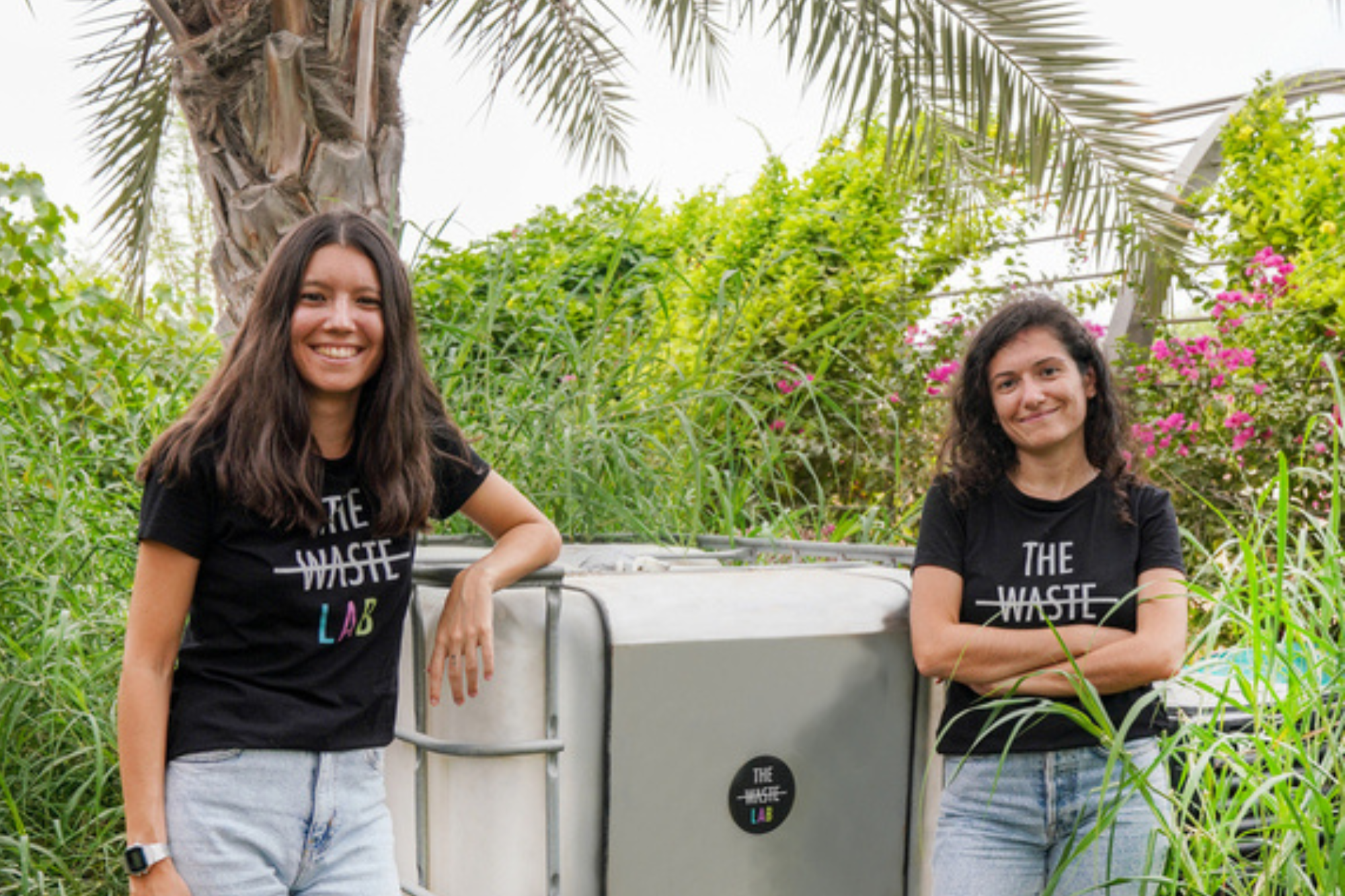Leading The Change: Smart Containers Co-Founder And CEO Richard Ettl On How His Startup Is Revolutionizing The Logistics Sector Smart Containers may not really sound like a name you'd associate with a high-tech company- but then again, you shouldn't judge a book by its cover.
You're reading Entrepreneur Middle East, an international franchise of Entrepreneur Media.

This article was co-written with Sindhu Hariharan, Features Editor, Entrepreneur Middle East.
Smart Containers may not really sound like a name you'd associate with a high-tech company- but then again, you shouldn't judge a book by its cover.
As a company that provides "the safest temperature-controlled containers to transport sensitive pharma goods and food around the world," the Switzerland-based Smart Containers is making use of cutting edge technology –both in its hardware and its software- to deliver on its goal to ensure no one ever receives a compromised product- a promise that is especially pertinent for the aforementioned industries. As the Smart Containers website explains: in pharma, its offering would enable medicine to travel safely from factory to patient, and in food, this translates to fresher produce from farm to table.
But how did Smart Containers come into existence in the first place? "As with almost all innovative breakthroughs, Smart Containers started by accident," says Richard Ettl, co-founder and CEO, Smart Containers. "My co-founder Nico [CTO Nico Ros] and I developed an insulation technology for skyscrapers. When we pitched it for a building of Novartis, a supply chain manager said that he had significant quality problems shipping to extremely hot countries like the Middle East. So, we did what startups do best, and quickly seized the opportunity and pivoted our model starting with our first application– SkyCell. Five years later, SkyCell is the no. 4 provider in containers for the pharma industry worldwide, servicing clients such as Novartis, Roche, GSK, just to name a few."
However, the pharma industry is just the beginning for the enterprise. Food supply chain is where Ettl and his team at Smart Containers see a strong market demand for their offerings, which is why they are now launching Food Guardians. And not surprisingly, the Middle East figures strongly in the markets they plan to tap in the near future. "We see strong potential in entering the GCC market, and have already received quite a lot positive feedback, as a large majority of fresh food (fish, meat etc.) is imported [in GCC], and then needs to be distributed to supermarkets, restaurants, and hotels," Ettl notes.

As for the product's USP, Ettl believes it is Smart Containers' strong proprietary technology (the company currently has 96 patents and four is pending for approval) that sets it apart in the industry. "I think we take the combination of hardware and software to the next level- similar to Apple," he says. "We design our own hardware– the containers. We are using the insulation technology to reflect 96% of the heat radiation. The second piece is the cooling technology, which stores 5x more energy than our competition (which run like a fridge with a battery). We operate like an ice cube, when the container is in the sun, the ice cube –built into the walls starts to melt slowly– turning crystals into liquid form, but we do not melt at 0°C, but at 5.5°C, which is ideal for pharma. The nice part is we recharge through cold air, so when the container is in a reefer truck, a cold storage at the airport, or in a warehouse, we are automatically recharging– no one needs to plug something in, or do something." The result, he says, is saving cost, and achieving "highest reliability" without any need for special training, as the container does all the work. "All our containers are built using renewable materials and are 100% eco-sustainable," he adds.
"But the kicker is the combination of that hardware with software," Ettl continues, focusing on their core strength. "We outfitted the containers with sensors about 3.5 years ago, which tells us, the state of a container, how it was handled in a warehouse etc. This allows us to avoid handing a container out to a customer that may have a problem." Here, he emphasizes on the fact that no manual intervention is required in all this, as data is directly transmitted from the container to their servers via the cloud. Given this level of automation and the product's capability to gather valuable data in the supply chain cycle, Ettl says the logical next step for them is putting it all on the blockchain. "In January 2018, we started to accept cryptocurrency as payment as the first container company in air freight. [We] see growing interest from freight forwarders and airlines to adopt such technology to reduce costs to administrate logistics. I think it will take 2-3 years for a true mass adoption in the industry, but we want to lead that change."
Smart Containers may be a Swiss company- but the Middle East, and especially GCC, is admittedly an interesting region for the company for multiple reasons. "First, one of our most important partners -Emirates Airlines- is here, and is our service partner on the pharma side for the region. We are the only container solution Emirates operates this way– we setup the service center in Dubai World Central, their mega pharma hub in Jebel Ali," says Ettl. "Second, from a climate perspective: during the summer months, temperatures can be very high, so people understand the need for the most reliable cool chain technology." Food Guardians, too, he says, fits the region's needs on multiple levels (such as a strong tourism and F&B sector, trends around food deliveries, and customer preferences etc.) and "has been received with a lot of excitement for the local players."

Therefore, we see a real opportunity and potential to improve the way fresh high-quality products such as fish, meat, vegetables are brought and stored at hotels, restaurants, supermarkets and end users," Ettl explains. "To service that need, we need to be close to our customers and partners. We started with a representative, and it's a question of months until we set up shop here somewhere in the UAE. We are still exploring options," he says. Lastly, he also alludes to "the business-friendly ecosystem" that the UAE has created. "We see a strong drive to incubate and adopt innovation at all fronts. We have access to a multinational pool of talent, and it's in close proximity to Asian markets. In the long run, we don't just want to import innovation, but we are looking forward to working with our partners to co-create and co-innovate in the region."
And to make it easier for them to achieve this objective, Smart Containers is making use of the initial coin offering (ICO) route to fund the enterprise. He points out the benefits of leveraging ICO to raise capital. "For the investor, that advantage is a liquid investment; for the company, a global investor base," he says. He adds that Switzerland is at the forefront of this new option to raise capital with the financial market authority of the country already having laid out how to apply existing laws to ICO fundraising. "We started quite early, and we're working through our lawyers with the FINMA [ and received the approval to go ahead." As for the Arab world, Ettl says the reception has been "very positive," with multiple family offices and VCs interested to invest. "The concept of ICO, however, is met with strong reservations, so we have to keep the possibility open to investing in equity, which I personally see as a strong commitment of investors, [and] not looking for the fastest way to sell again the stake in the company."
As a European company that feels quite at home in this part of the world, Ettl also offers some advice to local upstarts eyeing the global markets. "In the B2B world, it comes down [to] solving clients problems and how your USPs solve them better than existing solutions. In a global expansion, we analyze market potential not only by size but how the market is currently underserved or more exposed to a specific problem than other markets." However, he also cautions startups that regulation can be a driver of change -both negative and positive- and needs to be considered. "In essence, you are looking for the easiest market to start and then build on that, in Europe or any other region," he says.
As for his outlook on the enterprise's future, Ettl says, "Smart Containers is growing. SkyCell is growing massively- already no. 4 this year; we will be no.1 in three years' time. The adoption on the pharma side is currently going through the roof- which means more containers, which means more working capital is required. At the same time, we want to launch new products (direct to patient delivery solution on the pharma side), and enter the food market." Well, it's safe to say that here's an entrepreneur both confident and ambitious about his venture's prospects, and that's certainly a good combination of traits to have to achieve your goals!
Related: How Kuwait-Based Logistics Giant Agility Is Embracing Digital Disruption












